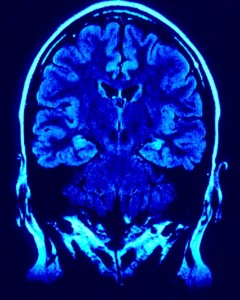What’s Up With This Memory Thing?
 “What’s up with this memory thing?”, asked one of my new transfer students. We talked about different levels of knowing and understanding and the fact that committing something to memory allows us to interact with it on a deeper level. “You don’t necessarily have to perform it from memory”, I said, “but you need the depth of study that comes by way of the process.”
“What’s up with this memory thing?”, asked one of my new transfer students. We talked about different levels of knowing and understanding and the fact that committing something to memory allows us to interact with it on a deeper level. “You don’t necessarily have to perform it from memory”, I said, “but you need the depth of study that comes by way of the process.”
I was reminded of this earlier in the week when reading a post by Brad Leithauser entitled Why We Should Memorize. Brad was discussing poetry in his post but what he has to say applies to playing music as well. You can read the entire post here.
The best argument for verse memorization may be that it provides us with knowledge of a qualitatively and physiologically different variety: you take the poem inside you, into your brain chemistry if not your blood, and you know it at a deeper, bodily level than if you simply read it off a screen. Robson puts the point succinctly: “If we do not learn by heart, the heart does not feel the rhythms of poetry as echoes or variations of its own insistent beat.”
Do I require that everything be memorized? Absolutely not. Much depends on the pianist’s goals for study and their prior experience. My piano majors are required to memorize. When they transfer to 4 year institutions they will need that skill. As professionals, they will need that skill. My very young students all memorize as a matter of course. Once the habit is formed, the task is not so onerous. Unless there is a real learning difficulty, I encourage my avocational students (adult and younger) to memorize at least some of their pieces even if they have never done so before.
In our yearly evaluation program, students may play 2 of 4 pieces with the score without penalty. They are held to a high standard whether a piece is memorized or not. I embrace the opportunity. Pianists must be able to play from the score as artistically as they perform as soloists. Obviously, to be a top ranked concert artist, you must memorize because grit and determination plus brain power are part of the skill set needed to form a strong enough musical character to stand up to the demands of concertizing. But, I have a friend who maintains that the average pianist (professional or avocational) spends much more time playing with the score than from memory and I tend to agree.
My undergraduate teacher once regaled us with the tale of a friend who was in a complete panic. He was playing his Master’s Recital in a week and still had a passage in Beethoven’s Op. 111 in which he just couldn’t remember the RH figuration. The rest of the entire program (in fact, the rest of the sonata) was polished and artistic- completely up to snuff. He told my teacher he simply didn’t know what he was going to do. Despite hours and hours of work using all the tricks he knew, every time he got to those few measures he completely lost the RH. In desperation, he took a long, narrow strip of paper and wrote out the recalcitrant figuration. Before the recital he affixed the strip of paper to the top of the fallboard where it was invisible to everyone but him. Sure enough, my teacher said, when his friend got to that passage in the sonata, his nose tracked right along the fallboard from left to right. The recital was a complete success, unmarred by obstreperous figurations. And yes, he managed to remove the strip of paper before anyone noticed.
As Tim Gunn would say… “Make it work people.”
I once heard a famous concert pianist (sorry, it was so long ago I’ve forgotten who exactly) say that it was ridiculous to memorize everything because it was more important to explore the vastness of the repertoire than to memorize the small portion that our brains are capable of storing. I would add creating music through improvisation and arranging, as well as collaboration to the list of important musical endeavors which should balance memorization.



Here’s another great post on memorizing http://memorisingmusic.com/2013/02/07/memorising-music-fashion-or-folly/
Here’s a post I just came across by Wendy Stevens on memory http://www.composecreate.com/controversial-things-we-dont-discuss-memorizing/
I see your point. Actually it is the best defense I have heard of the total memory thing for concert pianists. Probably comes out of the conservatory factory methodology. Interesting how the issue is addressed in the linked article.
I’m also not entirely ready to agree with that because … well, if mental toughness and grit and whatnot are needed to concertize then, concertizing itself will filter out the people who can’t manage it. No need to set an artificial test in front of someone that we believe will tell us whether or not they are up to the task. The task itself will tell us.
Full disclosure: I can’t NOT memorize something, but I did like to have the score up there as a safety net, or a rabbit’s foot. Then again, I’ve never played anything huge. Five or six pages is a snap to memorize. 23, not so much I imagine.
That said, I think memorizing for musicians can be a bit like memorizing for actors. If you know it down to the marrow of your bones, you can speak it more convincingly, more fluidly.
The thing is, to me, it seems like we put too much stock in going scoreless as a way of proving that we’ve memorized things and showing it off. Even for something I’ve memorized, I just like to have the score up there, even if I never turn beyond the first page.
Obviously, to be a top ranked concert artist, you must memorize because grit and determination plus brain power are part of the skill set needed to form a strong enough musical character to stand up to the demands of concertizing.
This I might disagree with, though. We’ve lost a lot of good musicians to this belief, if by “memorizing” we mean “proving it by not using a score.” I’d rather have been able back in the day to hear Leopold Godowsky, even if he did need a score to feel comfortable up there.
I really do think though, that at bottom we’re talking about two different things. Memorizing, and making a gesture to the audience that proves that we’ve memorized. And being judged by audience members who have heard so many note-perfect edited performances on CD that they have the entire thing memorized themselves and will rake someone over the coals for missing one note.